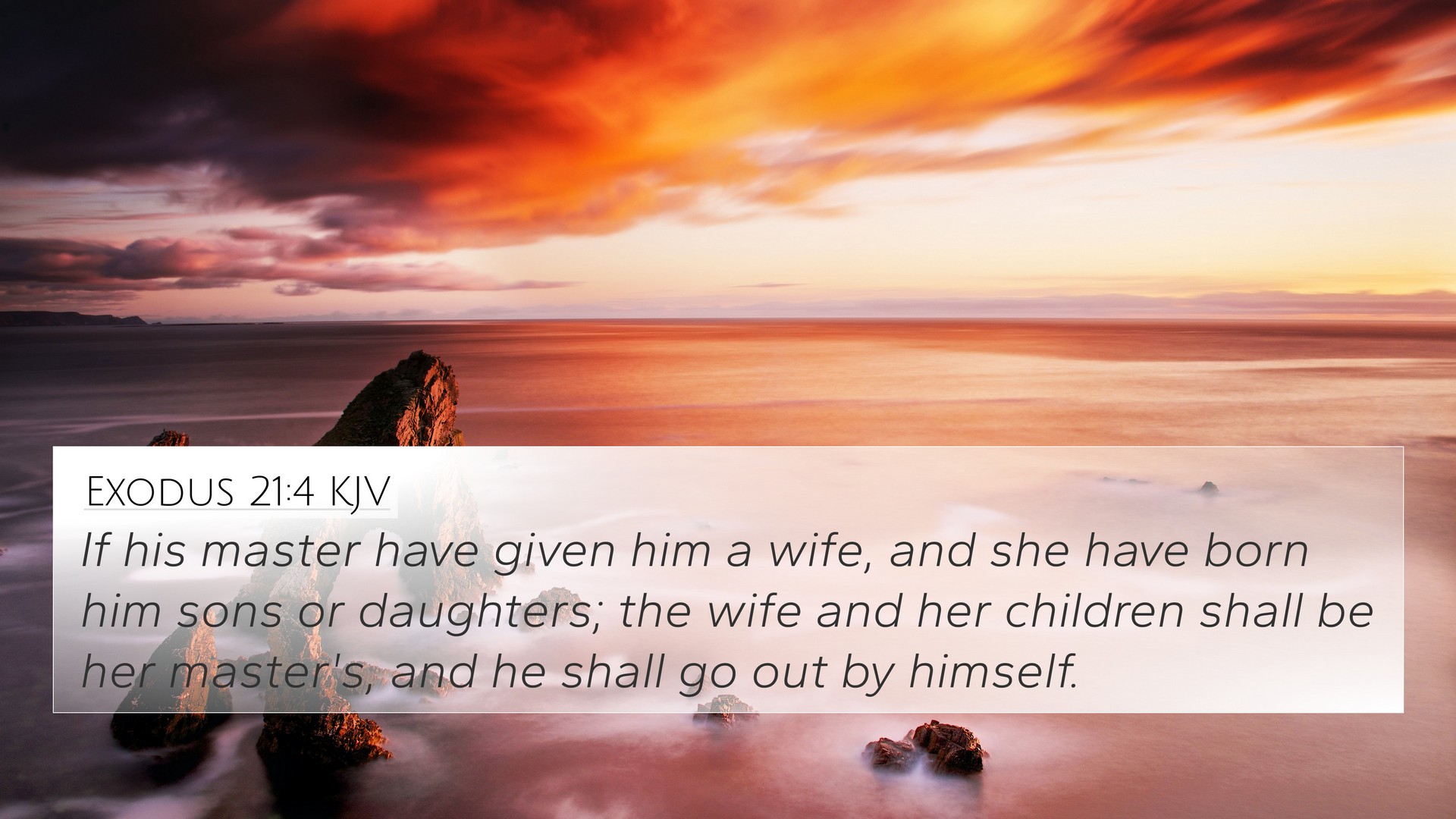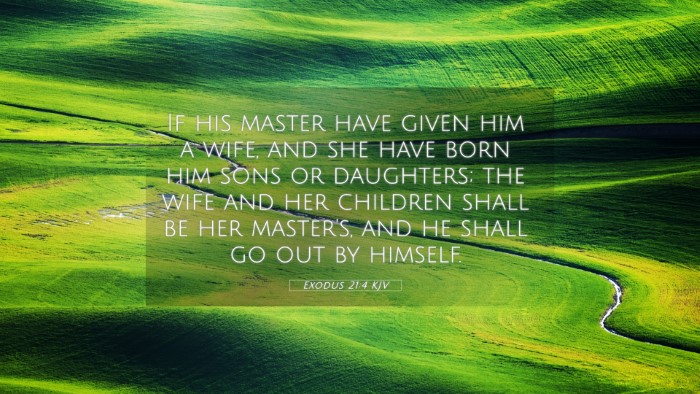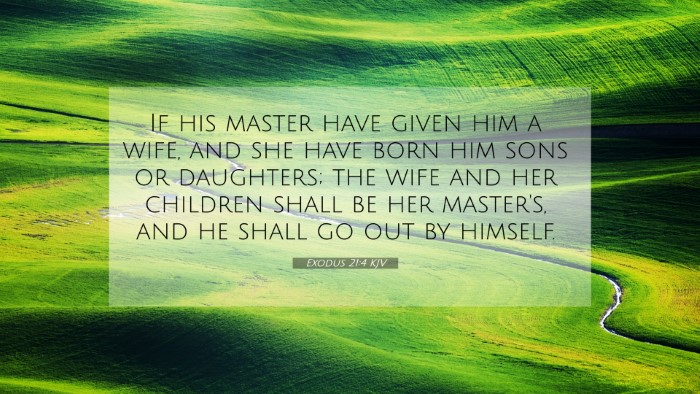Exodus 21:4 - Meaning and Interpretation
Exodus 21:4 reads: "If his master have given him a wife, and she have borne him sons or daughters; the wife and her children shall be her master's, and he shall go out by himself." This verse addresses the regulations concerning Hebrew servants, particularly focusing on the issue of family and property under servitude.
Summary of Insights
This scripture illustrates several themes, including the nature of servitude in ancient Israel, the rights of servants and their families, and the underlying principle of justice in society. Here are different perspectives from respected public domain commentaries:
-
Matthew Henry:
Henry emphasizes the treatment of servants, asserting that a master is responsible for the welfare of his servant's family. He points out that the master's possession of the wife and children highlights the importance of familial bonds and the implications of service. The passage illustrates how social status impacts family dynamics.
-
Albert Barnes:
Barnes explains that the servant’s status can change based on circumstances. He notes that while the master retains rights over the family, it serves as a reflection of the socio-economic structures of the time. He highlights that fairness in this regard promotes societal stability, emphasizing God’s desire for equity even within servitude.
-
Adam Clarke:
Clarke provides an analysis of the obligations and rights of servants, noting the cultural context in which the law was given. His focus is on the recognition of the servant’s family, suggesting that this law seeks to balance the interests of both the servant and the master while promoting a sense of responsibility.
Key Themes
- Familial Relationships:
The reference to the wife and children underlines the bonds that form even in servitude, suggesting an ethic of care and responsibility.
- Master-Servant Relationships:
The verse outlines the dynamics of ownership and authority, prompting questions about justice and equity within social hierarchies.
- Social Ethics:
This scripture serves as a reminder of the ethical dimensions of labor and service, highlighting the need for fair treatment and concern for the servant's family.
Bible Cross References
Exodus 21:4 can be cross-referenced with several other passages to enhance understanding:
- Exodus 21:3: Examines the conditions of servitude.
- Deuteronomy 15:12-15: Discusses the release of Hebrew servants.
- Leviticus 25:39-43: Explains the treatment of fellow Israelites in servitude.
- Matthew 10:24-25: Reflects on the servant-master relationship in a New Testament context.
- Ephesians 6:5-9: Provides insight into the behavior of servants and masters.
- 1 Timothy 6:1-2: Encourages respect and proper treatment of servants in the Christian household.
- Colossians 3:22-25: Advises workers (servants) to serve diligently as if serving the Lord.
Understanding Through Scripture Connections
The study of Exodus 21:4 invites us to delve into both the Old and New Testament connections. To better comprehend this verse, consider:
- Thematic Connections: The notions of servitude and family are themes that recur throughout the Bible, showing a consistent principle regarding the treatment of individuals within social structures.
- Comparative Analysis: By comparing this verse with passages that discuss labor, freedom, and rights (such as Deuteronomy 15), one gains a clearer picture of the responsibilities and rights numerous biblical texts address.
- Inter-Biblical Dialogue: Exploring the dialogue between Old Testament laws and New Testament teachings reveals how principles of justice and mercy transcend cultures and time periods.
Conclusion
In conclusion, Exodus 21:4 serves as a profound illustration of the complex interplay between servitude, family rights, and social ethics within ancient Israel. The insights gained from public domain commentaries enhance our understanding and reveal the timeless relevance of these themes in today's context.
Tools for Further Study
For those interested in exploring cross-referencing Biblical texts and further inquiry:
- Bible Concordance: Utilize a concordance to locate terms and themes across scripture.
- Bible Cross-Reference Guide: Employ guides that focus on linking Bible scriptures for thematic studies.
- Bible Reference Resources: Invest in resources that compile comprehensive Bible verses related to themes of servitude and social justice.


